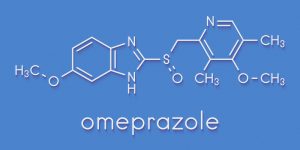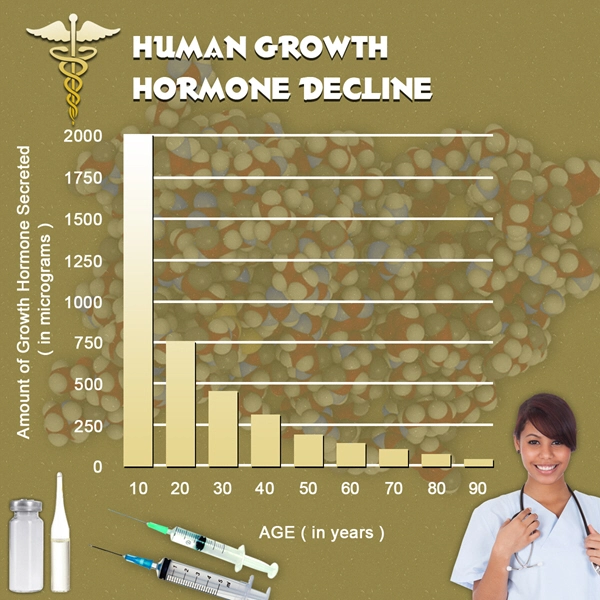
Heartburn is something that most Americans have tangled with at some point in their lives. Some people have to deal with it more than others, suffering from chronic, severe heartburn regularly.
In spite of how widespread and how frequent the experience of heartburn is, we've just recently begun to understand the mechanisms behind heartburn, and there's still so much to learn. Heartburn is also known as acid reflux.
Chronic heartburn is also scientifically referred to as GERD or Gastro-Esophageal Reflux Disease. It's estimated that one in every five people struggle with some form of upper gastrointestinal pain.
Video Link: https://vimeo.com/253313256
Video Download: Understanding Gerd
Video Stream: Understanding Gerd
What Causes Acid Reflux?
Until recently, heartburn had been considered merely as a dangerous influx of stomach acid in the esophagus. As research has continued and the body of evidence has grown, however, our conception of acid reflux has evolved.
Current research strongly suggests that acid reflux is the symptom of a more complex set of physiological issues, and is only part of the problem. Recent studies have shown that stomach acid secretion is mostly the body's response to an underlying theme: esophageal inflammation.
One of the most significant changes in how medical science views illness and disease is an increased emphasis on the damaging effects of chronic inflammation. In fact, it appears that this inflammation may be a primary factor in chronic heartburn and acid reflux, impairing digestion, and leading to a damaging feedback loop between inflammation and high stomach acid levels.
 Learning More About What Causes Heartburn: The Evolution of GERD
Learning More About What Causes Heartburn: The Evolution of GERD
What we first understood as chronic heartburn we have now reclassified into a more accurate term: Gastro-Esophageal Reflux Disease, or GERD.
This new medical terminology further illuminates the fact that chronic heartburn isn't merely a condition caused by stomach acid reflux, but a more complex set of factors.
Heartburn isn't the whole scope of GERD, but the defining characteristic directly experienced by the patient. Chronic heartburn treatment has revolved around medications to reduce acid secretion for decades, but medical science suggests there may be a better way to treat GERD at the source effectively.
The History of Heartburn Medications
The first modern medical treatment for heartburn was the calcium pill, the primary form of medicine in the first 2/3rds of the 20th century. The first sophisticated prescriptions for heartburn were first-generation acid blockers, the two most recognizable being Zantac and Pepcid.
Around the year 2000, newer drugs became available, which were more effective than 1st Gen acid blockers for many patients, called Protein Pump Inhibitors (PPIs). Some of the brand names for these drugs include Prilosec, Protonix, Prevacid, Aciphex, and Nexium.
To date, Protein Pump Inhibitors are the most prescribed medication for those that struggle with chronic acid reflux. The problem is that even these sophisticated PPIs also come with their own set of significant drawbacks, and don't necessarily treat the entire issue.
Medical scientists are working hard to try to discover the next form of heartburn treatment -- one that addresses not only acid reflux but also the underlying inflammation associated with GERD, hopefully with a reduced incidence of side effects.
In a study conducted in tandem by the University of Texas Southwestern Medical Center and the Dallas Veterans Administration Medical Center, research has revealed what is likely the underlying cause of chronic heartburn: Cytokine-elicited inflammation.
Cytokines are a tool that our immune systems use to stimulate inflammation. Often, chronic inflammation is an autoimmune response, the result of the human body attacking itself, in a misguided attempt to protect itself. This very well may be the case for GERD-sufferers as well.
GERD Animal Research
In this particularly illuminating study, researchers used mouse tissue to replicate the effects of heartburn, to examine more closely how GERD operates. In this study, scientists subjected intestinal tissue from rodents to a liquid replicating that of stomach acid.
It was believed that only exposing the muscle to the acid, would accurately portray the effects of acid reflux on the digestive system, but this was not the case. What they did discover was that the acid exposure  created inflammation when the tissue was exposed to stomach acid periodically every day, leading to the visible symptoms of chronic heartburn that we are used to seeing in humans.
created inflammation when the tissue was exposed to stomach acid periodically every day, leading to the visible symptoms of chronic heartburn that we are used to seeing in humans.
Treating Heartburn vs. Preventing Heartburn
Among the most notable changes in medical philosophy, today is increased value in preventing chronic health issues before they become a problem, versus treating the symptoms of underlying conditions that impair wellness.
This study is no exception. PPIs and other treatments for acid reflux will continue to be of vital importance to the treatment of GERD, but until we find preventative therapies to prevent the inflammation associated with heartburn in the first place, we'll merely be treating the symptoms of the disease rather than getting to the heart of the matter and treating the patient most effectively.
Protein Pump Inhibitor Side Effects
One of the most important reasons why we have to expand our knowledge and range of treatment options for GERD is because PPIs have a significant issue with side effects, especially for patients that continue to take these drugs for an extended period. These are some of the most prominent side effects of PPIs:
Increased Risk of Osteoporosis -- PPIs make it harder for the bones to absorb calcium, increasing the rate of bone loss and the risk of Osteoporosis-related incidents.
Higher Incidence of Nutritional Deficiencies -- PPIs make it more difficult to absorb  magnesium, iron, B12, Zinc, Vitamin D, and Calcium.
magnesium, iron, B12, Zinc, Vitamin D, and Calcium.
PPIs Increases the Risk of Heart Attack -- Taking Protein Pump Inhibitors for an extended period has been shown to boost heart attack risk by around 21%.
Enhanced Risk of Gastrointestinal Infection and Colitis -- Too much stomach acid is a bad thing, but so is insufficient stomach acid. Suppressed stomach acid levels allow viruses and bacteria to pass into the digestive tract, leading to infections. E.coli, C. dificile, and Norovirus are among the most common experienced by patients taking PPIs.
Dementia and Alzheimer's More Likely with PPIs -- This may be surprising, but the influence of PPIs appears to increase the volume of amyloid plaques in brain tissue, the root cause of dementia.
IBS and PPIs -- Suppressing acid levels in the stomach ultimately can alter the abundance of various gut bacteria, many of which are healthy. If the gut microflora is thrown out of balance, this can lead to cramps, constipation, bloating, and diarrhea, directly attributable to Irritable Bowel Syndrome (IBS).
Pneumonia Risk and PPIs -- This, again, is related to the suppression of stomach acid, which increases the levels of bacteria throughout the digestive tract. Aspiration causes bacteria from the stomach to pass back into the lungs, which can lead to pneumonia. This is more of an issue with older patients, especially those that have difficulty swallowing.
Treating Heartburn in a Healthy Way
These side effects aren't the only issue with treating GERD with PPIs. Protein Pump Inhibitors aren't always entirely effective, which is another major issue. Many patients still have to deal with painful acid reflux even when they take PPIs because the underlying problem of inflammation isn't entirely resolved via PPIs alone.
For some patients, heartburn is only a temporary and occasional problem, and for these patients, PPIs are still pretty safe and effective. But those that suffer from GERD do not experience the same results or the same safety profile.
To improve the short-term health and long-term wellness of patients with GERD, we have to figure out a way to resolve chronic heartburn with a drastically minimized emphasis on PPIs. Antacid medications are used by millions of men and women across the country, religiously by many. It is for these people that moving beyond Antacids will help tremendously.
 Antacids and GERD: Diminishing Returns
Antacids and GERD: Diminishing Returns
A final issue with acid reflux medications is that they cause problems even when patients stop taking them.
Patients that stop taking PPIs after using them for a long time have a very high risk of experiencing severe heartburn again quickly, right after they stop taking their medication. This is because the body adapts to the presence of the medicine, working harder to send signals to produce stomach acid, since Antacids block receptors that encourage the production of acid.
Once PPIs are out of your system, the body is suddenly able to receive all of these signals, leading to the overproduction of stomach acid and elevated pain and discomfort. Also, the body's natural methods of suppressing acid production are themselves overpowered, because standard levels haven't been necessary because of the medication.
Ultimately, PPIs do their job for those with intermittent heartburn and acid reflux, but are terrible for patients with full-blown GERD, because of their side effects and diminished effectiveness.
Patients suffering from GERD should talk with their doctor about ways they can minimize or eliminate their use of PPIs if possible and should keep themselves aware of new medical knowledge and technologies that will become available to help them in the future.
Reference
Proton pump inhibitor-refractory gastroesophageal reflux disease: challenges and solutions

- Human Growth Hormone Injections In Cheyenne [Last Updated On: May 25th, 2025] [Originally Added On: October 19th, 2018]
- Human Growth Hormone Injections In Madison [Last Updated On: May 31st, 2025] [Originally Added On: October 19th, 2018]
- Human Growth Hormone Injections In Vancouver [Last Updated On: February 24th, 2025] [Originally Added On: October 19th, 2018]
- Human Growth Hormone Injections In Tacoma [Last Updated On: February 25th, 2025] [Originally Added On: October 19th, 2018]
- Human Growth Hormone Injections In Spokane [Last Updated On: February 26th, 2025] [Originally Added On: October 19th, 2018]
- Human Growth Hormone Injections In Bellevue [Last Updated On: February 26th, 2025] [Originally Added On: October 19th, 2018]
- Human Growth Hormone Injections In Richmond [Last Updated On: May 31st, 2025] [Originally Added On: October 19th, 2018]
- Human Growth Hormone Injections In Portsmouth [Last Updated On: June 1st, 2025] [Originally Added On: October 19th, 2018]
- Human Growth Hormone Injections In Norfolk [Last Updated On: June 1st, 2025] [Originally Added On: October 19th, 2018]
- Human Growth Hormone Injections In Hampton [Last Updated On: March 27th, 2025] [Originally Added On: October 19th, 2018]
- Human Growth Hormone Injections In Chesapeake [Last Updated On: March 27th, 2025] [Originally Added On: October 19th, 2018]
- Human Growth Hormone Injections In Alexandria [Last Updated On: March 28th, 2025] [Originally Added On: October 19th, 2018]
- Human Growth Hormone Injections In Montpelier [Last Updated On: June 2nd, 2025] [Originally Added On: October 19th, 2018]
- Human Growth Hormone Injections In Provo [Last Updated On: June 2nd, 2025] [Originally Added On: October 19th, 2018]
- Human Growth Hormone Injections In Waco [Last Updated On: June 7th, 2025] [Originally Added On: October 19th, 2018]
- Human Growth Hormone Injections In Richardson [Last Updated On: June 5th, 2025] [Originally Added On: October 19th, 2018]
- Human Growth Hormone Injections In Plano [Last Updated On: June 6th, 2025] [Originally Added On: October 19th, 2018]
- Human Growth Hormone Injections In Pasadena [Last Updated On: June 4th, 2025] [Originally Added On: October 19th, 2018]
- Human Growth Hormone Injections In Midland [Last Updated On: June 7th, 2025] [Originally Added On: October 19th, 2018]
- Human Growth Hormone Injections In Mesquite [Last Updated On: June 4th, 2025] [Originally Added On: October 19th, 2018]
- Human Growth Hormone Injections In McKinney [Last Updated On: June 3rd, 2025] [Originally Added On: October 19th, 2018]
- Human Growth Hormone Injections In McAllen [Last Updated On: June 8th, 2025] [Originally Added On: October 19th, 2018]
- Human Growth Hormone Injections In Lubbock [Last Updated On: June 6th, 2025] [Originally Added On: October 19th, 2018]
- Human Growth Hormone Injections In Lewisville [Last Updated On: June 5th, 2025] [Originally Added On: October 20th, 2018]
- Human Growth Hormone Injections In Laredo [Last Updated On: June 3rd, 2025] [Originally Added On: October 20th, 2018]
- Human Growth Hormone Injections In Killeen [Last Updated On: February 18th, 2025] [Originally Added On: October 20th, 2018]
- Human Growth Hormone Injections In Irving [Last Updated On: February 19th, 2025] [Originally Added On: October 20th, 2018]
- Human Growth Hormone Injections In Garland [Last Updated On: February 20th, 2025] [Originally Added On: October 20th, 2018]
- Human Growth Hormone Injections In Denton [Last Updated On: February 21st, 2025] [Originally Added On: October 20th, 2018]
- Human Growth Hormone Injections In Carrollton [Last Updated On: June 8th, 2025] [Originally Added On: October 20th, 2018]
- Human Growth Hormone Injections In Brownsville [Last Updated On: February 21st, 2025] [Originally Added On: October 20th, 2018]
- Human Growth Hormone Injections In Beaumont [Last Updated On: February 18th, 2025] [Originally Added On: October 20th, 2018]
- Human Growth Hormone Injections In Austin [Last Updated On: February 22nd, 2025] [Originally Added On: October 20th, 2018]
- Human Growth Hormone Injections In Arlington [Last Updated On: February 20th, 2025] [Originally Added On: October 20th, 2018]
- Human Growth Hormone Injections In Amarillo [Last Updated On: February 19th, 2025] [Originally Added On: October 20th, 2018]
- Human Growth Hormone Injections In Abilene [Last Updated On: February 22nd, 2025] [Originally Added On: October 20th, 2018]
- Human Growth Hormone Injections In Nashville [Last Updated On: February 27th, 2025] [Originally Added On: October 20th, 2018]
- Human Growth Hormone Injections In Murfreesboro [Last Updated On: February 27th, 2025] [Originally Added On: October 20th, 2018]
- Human Growth Hormone Injections In Memphis [Last Updated On: February 28th, 2025] [Originally Added On: October 20th, 2018]
- Human Growth Hormone Injections In Knoxville [Last Updated On: February 28th, 2025] [Originally Added On: October 20th, 2018]
- Human Growth Hormone Injections In Clarksville [Last Updated On: March 1st, 2025] [Originally Added On: October 20th, 2018]
- Human Growth Hormone Injections In Chattanooga [Last Updated On: March 1st, 2025] [Originally Added On: October 20th, 2018]
- Human Growth Hormone Injections In Erie [Last Updated On: March 29th, 2025] [Originally Added On: October 20th, 2018]
- Human Growth Hormone Injections In Allentown [Last Updated On: March 28th, 2025] [Originally Added On: October 20th, 2018]
- Human Growth Hormone Injections In Salem [Last Updated On: March 2nd, 2025] [Originally Added On: October 20th, 2018]
- Human Growth Hormone Injections In Portland [Last Updated On: March 2nd, 2025] [Originally Added On: October 20th, 2018]
- Human Growth Hormone Injections In Gresham [Last Updated On: March 3rd, 2025] [Originally Added On: October 20th, 2018]
- Human Growth Hormone Injections In Eugene [Last Updated On: March 3rd, 2025] [Originally Added On: October 20th, 2018]
- Human Growth Hormone Injections In Tulsa [Last Updated On: March 4th, 2025] [Originally Added On: October 20th, 2018]
- Human Growth Hormone Injections In Norman [Last Updated On: March 4th, 2025] [Originally Added On: October 20th, 2018]
- Human Growth Hormone Injections In Toledo [Last Updated On: May 27th, 2025] [Originally Added On: October 20th, 2018]
- Human Growth Hormone Injections In Dayton [Last Updated On: May 29th, 2025] [Originally Added On: October 20th, 2018]
- Human Growth Hormone Injections In Columbus [Last Updated On: May 29th, 2025] [Originally Added On: October 20th, 2018]
- Human Growth Hormone Injections In Akron [Last Updated On: May 30th, 2025] [Originally Added On: October 20th, 2018]
- Human Growth Hormone Injections In Paterson [Last Updated On: February 23rd, 2025] [Originally Added On: October 20th, 2018]
- Human Growth Hormone Injections In Reno [Last Updated On: February 24th, 2025] [Originally Added On: October 20th, 2018]
- Human Growth Hormone Injections In Henderson [Last Updated On: February 25th, 2025] [Originally Added On: October 20th, 2018]
- Human Growth Hormone Injections In Omaha [Last Updated On: May 26th, 2025] [Originally Added On: October 20th, 2018]
- Human Growth Hormone Injections In Lincoln [Last Updated On: May 26th, 2025] [Originally Added On: October 20th, 2018]
- Human Growth Hormone Injections In Billings [Last Updated On: May 27th, 2025] [Originally Added On: October 20th, 2018]
- Human Growth Hormone Injections In Springfield [Last Updated On: May 28th, 2025] [Originally Added On: October 20th, 2018]
- Human Growth Hormone Injections In Independence [Last Updated On: August 30th, 2025] [Originally Added On: October 20th, 2018]
- Human Growth Hormone Injections In Columbia [Last Updated On: May 28th, 2025] [Originally Added On: October 20th, 2018]
- Human Growth Hormone Injections In Jackson [Last Updated On: May 30th, 2025] [Originally Added On: October 20th, 2018]
- Human Growth Hormone Injections In Rochester [Last Updated On: February 23rd, 2025] [Originally Added On: October 20th, 2018]
- Human Growth Hormone Injections In Warren [Last Updated On: March 5th, 2025] [Originally Added On: October 20th, 2018]
- Human Growth Hormone Injections In Lansing [Last Updated On: March 5th, 2025] [Originally Added On: October 20th, 2018]
- Human Growth Hormone Injections In Flint [Last Updated On: March 6th, 2025] [Originally Added On: October 20th, 2018]
- Human Growth Hormone Injections In Worcester [Last Updated On: March 29th, 2025] [Originally Added On: October 20th, 2018]
- Human Growth Hormone Injections In Springfield [Last Updated On: March 30th, 2025] [Originally Added On: October 20th, 2018]
- Human Growth Hormone Injections In Lowell [Last Updated On: March 30th, 2025] [Originally Added On: October 20th, 2018]
- Human Growth Hormone Injections In Cambridge [Last Updated On: March 31st, 2025] [Originally Added On: October 20th, 2018]
- Human Growth Hormone Injections In Augusta [Last Updated On: March 6th, 2025] [Originally Added On: October 20th, 2018]
- Human Growth Hormone Injections In Shreveport [Last Updated On: March 7th, 2025] [Originally Added On: October 20th, 2018]
- Human Growth Hormone Injections In Lafayette [Last Updated On: March 7th, 2025] [Originally Added On: October 20th, 2018]
- Human Growth Hormone Injections In Louisville [Last Updated On: March 8th, 2025] [Originally Added On: October 20th, 2018]
- Human Growth Hormone Injections In Lexington [Last Updated On: March 8th, 2025] [Originally Added On: October 20th, 2018]
- Human Growth Hormone Injections In Wichita [Last Updated On: March 9th, 2025] [Originally Added On: October 20th, 2018]
- Human Growth Hormone Injections In Topeka [Last Updated On: March 9th, 2025] [Originally Added On: October 20th, 2018]
- Human Growth Hormone Injections In Olathe [Last Updated On: March 10th, 2025] [Originally Added On: October 20th, 2018]



List of USA state clinics - click a flag below for blood testing clinics.
Word Count: 1518


















































